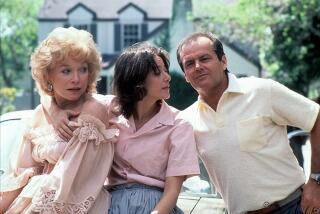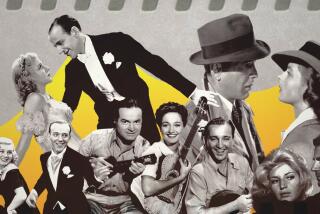Yesterday’s movies
- Share via
I was sorry to read that Lewis Yablonsky did not like “The Hours” (Letters, Feb. 16). I thought it was like seeing a great 15-round world heavyweight acting bout with 10 contenders all at the top of their powers. I am a bit baffled, however, at his call for a return to the great old movies of the past, with the implication that they were higher-toned and more moral. He mentions three Ingrid Bergman movies, but he does not seem to recall the details of them very closely.
“Indiscreet” is about a romance between an actress and a diplomat, in which the diplomat lies to her, telling her he is married so she will not get serious about him. She goes along with this until she discovers he is not married, whereupon Bergman delivers the great line, “How dare he make love to me and not be a married man.”
“Intermezzo” is about an adulterous love affair between a young musician and a very married orchestra conductor.
And “Casablanca”? It begins with corrupt police killing innocent civilians, then spends most of its time in a gambling den owned by an ex-gunrunner. The owner’s pal is a corrupt policeman who sexually blackmails young women. The owner rekindles an old adulterous affair, kills a high-ranking army officer and does not get arrested for it.
Yablonsky seems to have the cultural conservative’s view of old movies and the past in general: Time sanctifies and makes pure.
Tom Stempel
Los Angeles
*
Sociologist Lewis Yablonsky is certainly entitled to his opinion. However, giving “The Hours” a mere 20 minutes did not allow him much openness to possibility.
Film serves many functions -- revealing the human condition and enlightenment, among them. Great filmmaking is not limited to genre, sensibility or subject matter. And surely not whether one is whistling a happy tune as one leaves the theater.
Jeanine D’Elia
Granada Hills
More to Read
Only good movies
Get the Indie Focus newsletter, Mark Olsen's weekly guide to the world of cinema.
You may occasionally receive promotional content from the Los Angeles Times.







